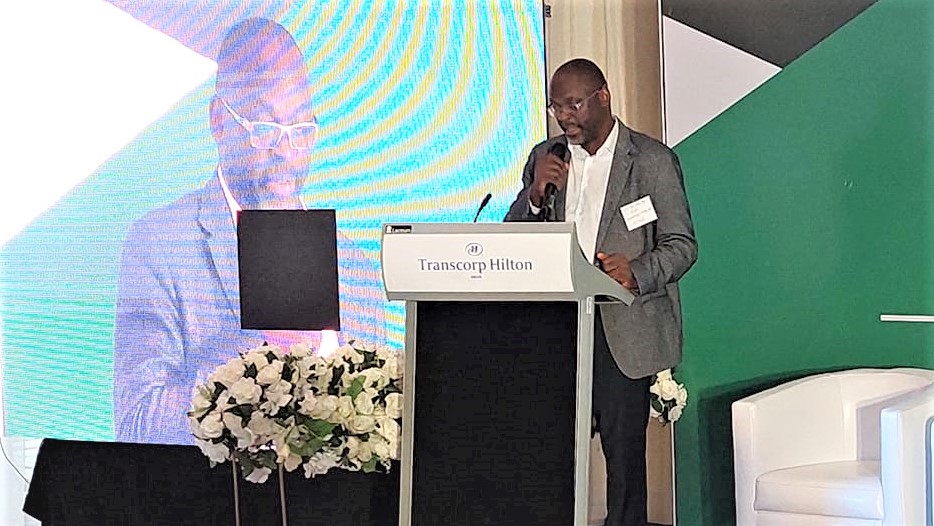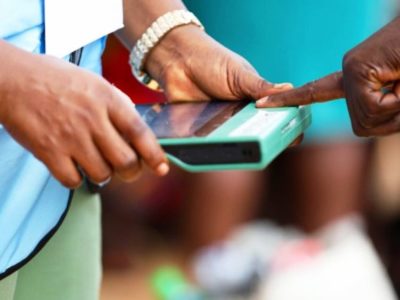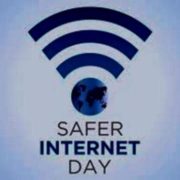By Dr Agu Collins Anayochukwu Agu (PhD)
Your Excellency , Mary Beth Leonard, The US Ambassador to Nigeria, Ladies and Gentlemen, greetings.
It is a tremendous honour and pleasure for me to participate in this great summit! Thank you for the personal invitation.

I will bring to you the perspective from the skills development in emerging technologies. The 3E – focal areas of this summit is very apt; ie Education, Employment and Entrepreuneurship!! in essence this summit stands on a 3E tripod!
I am the Director Corporate Planning & Strategy at NITDA, which is charged with the responsibility of regulating and developing Information Technology Sector in Nigeria and also has the key mandate to build capacity, promote indigenous technology and collaborate with stakeholders towards national development.
NITDA also carries out clearance of ICT projects across the MDAs for technology compliance and interoperability, while also carrying out advisory services for both public and private sectors.
I chaired the committee that developed the 4-year IT roadmap for Nigeria, made up of 7 thrust areas.
I am not officially representing NITDA at this moment as I am currently on research sabbatical.
Whatever I say here is strictly my personal opinion.
Besides my work at NITDA, I am also a founder and mentor of an innovation charity, a non profit Hub and Tech Lab – td4pai IoT Hub engaged in adaptation and indigenization of technology, and human capital development in emerging technologies.
Nigeria’s population annual growth rate is 2.5% which translates to about an increase of 5.175 million/per annum, 18 years median age with the youth making up 50% of the population. One out of every four Africans and one out of every five persons of African origin is a Nigerian. Nigeria is the 7th most populous nation in the world.
By 2050 Nigeria’s population is predicted to double translating to about 400million, which is a huge natural resource requiring conversion into Human Capital through infusion of industry-sought-after skills and knowledge.
Human capital oils globalization
In this era of globalization, the role of human capital is necessary for supporting sustainable economic activity towards economic progress and a country’s ability to develop its human resources, specifically in providing skilled workforces in various fields, becomes the key to economic success! We are very concerned about this!
Our young people are our most valuable natural resource, at home and abroad. Their ingenuity, creativity, innovation and entrepreneurial spirit is evident to all. The Nigerian commercial city, Lagos has been ranked as the leading startup ecosystem on the African continent. According to the 2021 Global Startup Ecosystem Report (GSER), Lagos ranked 52nd of the top 100 emerging startup ecosystems across the globe; ahead of Cairo, Nairobi and Cape Town.
The Nigerian government has made various strategic strides in sustaining the gains made so far in areas of innovations and entrepreneurship through the issuance of various enabling policies, framework and guidelines such as The National Digital Economy Policy and Strategy (NDEPS) with 8 thrust areas, SRAP with 7 thrust areas etc.
On the 15th of December 2021, The Nigerian government approved the Nigeria startup bill to provide a conducive environment for entrepreneurs while also making provisions for four foundational elements: Capital, Regulation, Infrastructure, and Talent.
Some of the thrust areas of the SRAP are Digital Literacy and Skills, Emerging Technologies ,focusing on the acquisition of modern skills required to increase especially the self-employability of the workforce.
The fourth industrial revolution characterized by the fusion of the digital, biological and physical worlds is the current and developing environment in which disruptive technologies and trends such as the Internet of Things (IoT), artificial intelligence (AI), robotics, virtual reality (VR), cloud computing and 3D printing etc are changing the way we live and work.
Whilst technological advancements are undoubtedly increasing productivity, concerns over job losses due to automation are rife. The World Economic Forum predicts net job growth overall, with as many as four new roles emerging for each role lost.
Without bold reforms in education through the introduction of Education Technology and clear policies to guide us through, many people will lack the necessary skills to fill these new positions in the future economies and societies that are anticipated to be fundamentally different.
Our educators have a responsibility to prepare our students, providing them not only with the knowledge and understanding of the technologies, but also the skills needed to make them work-ready and succeed in a fast-changing world.
In educating for the 4th Industrial Revolution in the current environment; the educational tools, techniques and curricula that we have been using for decades may no longer be fit for this purpose. Hence the need for:
- Periodic curriculum reviews to mitigate the increasingly rapid rates at which knowledge becomes obsolete.
- Development, adoption and diffusion of Indigenous Education Technology Solutions nationwide for sustainability.
- Problem solving capability through creative thinking and problem-based learning methods, especially at the early age.
Unity Board is a made-in-Nigeria Education Technology Platform
We, leveraging ICT as an enabler, introduced an award-winning EdTech solution to diminish the deficiency in industry sought-after & marketable skills especially in emerging technologies that could have established Nigeria as an outsourcing destination leveraging her re-skilled workforce – The Unity Board (An IoT/AI STEAM Education Platform) championed by the Hon. Minister of Communications & Digital Economy, Prof Isa Ali Ibrahim Pantami FBCS, FNCS, FIIM with me as the Co-Author.
Unity Board is a made-in-Nigeria Education Technology Platform, a hardware which is also an embedded AI/ IoT STEAM education kit to drive learning and teaching of emerging technologies such as IoT, Robotics and Artificial Intelligence to accelerate local content development and indigenization of technology through human capital development.
STEAM, stands for Science, Technology, Engineering, Arts and Maths which aims to embed problem solving capability through creative thinking and problem-based learning methods, especially at the early age.
Unity Board is a creative medium for advancing teaching and learning, designed specifically as hands-on learning tools to help today’s students build skills for the creative and digital economy through critical thinking, collaboration, communication, curiosity, problem solving and invention.
It teaches Physical Computing combining hardware and software by focusing on teaching of computer science and computational thinking creating a perfect way to introduce middle school and older students to physical computing that opens up a world of opportunities in the fields of robotics, engineering, fashion, medical industries, environmental sciences and Internet of Things (IoT) ) – one of the foundation stones of Industry 4.0; ensuring better preparedness to enter the workforce of the future.
Unity Board will spark the spirit of innovation in learners, and ignite great things! When students are free to invent and create, they begin to see technology as a means for solving real-world problems and taking their learning to the next level. It is the perfect platform that brings both professionals and students (Industry and Academia) together while also
bringing internet of things at your fingertips with the possibility of talking to the cloud, creating great opportunities to assimilate smart technologies.
There is compatibility with the popular open source hardware – Arduino and peripheral modules making it programmable via Arduino IDE and compatible with all the example codes and libraries for Arduino. It is also compatible with Graphical Programming Environment such as Scratch for Arduino (S4A), ArduBlock, XOD, Minibloq, Modkit, Visuino etc and also programmable via smart phones through bluetooth interface – a very rare and unique feature enabling Digital Inclusion.
Unity Board helps IoT developers avoid tunnel vision
Furthermore, Unity Board, as an end-to-end platform helps IoT developers avoid tunnel vision and its consequences by providing a comprehensive set of hardware and software components that easily combine into complete IoT applications, providing developers with a head start on their custom designs.
With its very impressive specifications and features, Unity Board reduces bread-boarding and adopts a modular and scalable architecture that addresses challenges facing the IoT adoption, adaptation and deployment in Africa; in diverse areas such as: 1. Government 2. Healthcare 3. Fleet management and telematics 4. Security 5. eAgric etc
Applications of Unity Board:
Learning embedded programming, developing and testing firmware
Smart Irrigation Systems
Environment Monitoring Systems (Flooding, Air Pollution, Climate Change, Ambient Temperature etc.)
Security systems
Data Acquisition Systems
Grid/infrastructure Monitoring
Reservoir Monitoring
STEM Education (capacity development in emerging technologies such as IoT, AI, Robotics, RFID etc.)
Smart Technology
Research
Process Automation etc.
In 2019, during the National Council on Communications and Digital Economy held at Gombe, the following resolutions were made with respect to a memo presented for adoption of the Unity Board:
- Utilization of the indigenous education technology platform (Unity Board) as one of the basis for preparing the Nigerian workforce towards the Fourth Industrial Revolution (4IR) through capacity development in emerging technologies.
- Collaboration with Ministry of Education, UBEC, FMST, TETFUND, FMC&DE, MoD, CBN, NCC, USPF, Private Sector , Makers Community etc towards the adoption and deployment of the Unity Board nationwide with pervasive benefits from its use.
3.Development of curriculum, establishment and promotion of train-the-trainer programs with subsequent relevant indigenous certifications.
I am delighted to request for further collaboration with Federal Ministry of Education, FMC&DE, Federal Ministry of Science & Technology, Defence, NCC, USPF, UBEC, TETFUND, FME, NUC, Ministry of Labour, Academia, Research Institutions, Hubs, Makers Communities etc. for effective diffusion and utilization of our Indigenous Education Technology Solution – Unity Board AI/IoT STEAM Education Kit.
In the immediate future, we plan conducting capacity development in emerging technologies using Unity Board as a tool through collaborations.
I also look forward to collaborating further, with major stakeholders and beyond in order to bring about sustainable development for all through ICT innovations and entrepreneurship.
Links to field applications and high resolution images of Unity Board will be shared.
With these few words, I thank you all for listening and I wish you all a fruitful deliberation.
Keynote Speech by Dr Agu Collins Anayochukwu Agu (PhD) at the just concluded Nigeria Tech Summit sponsored by the US Embassy, Nigeria. Agu, mentor of td4pai IoT Hub, is also the Director Corporate Planning and Strategy at National Information Technology Development Agency (NITDA)






























